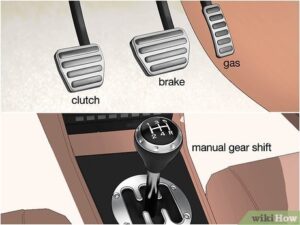Owning and driving a car for the first time is an exciting experience, but it comes with responsibilities, especially when it comes to maintaining your vehicle. Regular maintenance not only ensures your car runs smoothly but also enhances safety and longevity. Here’s a comprehensive guide to essential car maintenance tips for new drivers, complete with practical advice and tips to keep your car in optimal condition.
1. Understand Your Car’s Manual

Why It’s Important: Your car’s owner manual is a treasure trove of information. It includes details about maintenance schedules, fluid types, tire pressure, and more.
Tip: Familiarize yourself with the manual’s contents, including the maintenance schedule and troubleshooting tips, to better understand your car’s needs.
2. Regular Oil Changes
Why It’s Important: Engine oil lubricates the engine’s moving parts, reducing friction and wear. Over time, oil breaks down, becoming less effective and leading to engine damage.
How Often: Typically, you should change your oil every 5,000 to 7,500 miles, but this varies by vehicle. Always refer to your car’s manual for the specific interval.
Tip: Use high-quality oil and consider synthetic oil for better performance and longer intervals between changes.
3. Check Tire Pressure and Tread
Why It’s Important: Proper tire pressure improves fuel efficiency, handling, and tire lifespan. Incorrect tire pressure can cause poor traction and increase the risk of blowouts.
How Often: Check tire pressure monthly and before long trips. Use a tire pressure gauge to ensure they are inflated to the manufacturer’s recommended PSI.
Tip: Rotate your tires every 6,000 to 8,000 miles to ensure even wear and extend their life.
4. Inspect the Brakes
Why It’s Important: Brakes are crucial for safety. Worn brake pads and rotors can lead to longer stopping distances and brake failure.
How Often: Have your brakes inspected every 10,000 miles or during routine maintenance. Listen for squeaking or grinding noises and watch for warning lights on your dashboard.
Tip: Replace brake pads before they wear down to the metal to avoid damaging the rotors.
5. Replace Air Filters

Why It’s Important: Clean air filters ensure your engine gets the right amount of air for efficient combustion. Dirty filters can reduce engine performance and fuel efficiency.
How Often: Replace the air filter every 12,000 to 15,000 miles, or more frequently if you drive in dusty conditions.
Tip: Check your owner’s manual for the exact location and type of air filter your car needs.
6. Change the Cabin Air Filter
Why It’s Important: The cabin air filter keeps dust, pollen, and other contaminants from entering your vehicle’s interior. A dirty filter can reduce air quality and strain your HVAC system.
How Often: Replace the cabin air filter every 15,000 to 25,000 miles, or annually.
Tip: A clean cabin air filter improves your car’s air conditioning and heating performance.
7. Check Fluid Levels
Why It’s Important: Essential fluids like coolant, brake fluid, transmission fluid, and windshield washer fluid are crucial for your car’s functionality and safety.
How Often: Check fluid levels monthly and top them off as needed. Refer to your owner’s manual for the correct type of fluid for your vehicle.
Tip: Regularly inspect for leaks and replace fluids as recommended by your manufacturer.
8. Inspect Belts and Hoses
Why It’s Important: Belts and hoses are vital for the engine’s operation. Worn or cracked belts and hoses can lead to overheating or engine failure.
How Often: Inspect belts and hoses every 20,000 miles or during routine maintenance. Look for cracks, fraying, or leaks.
Tip: Replace any damaged belts or hoses to prevent unexpected breakdowns.
9. Check the Battery
Why It’s Important: A healthy battery is essential for starting your car and powering its electrical systems. Weak or old batteries can leave you stranded.
How Often: Test your battery every 6 months and clean the terminals to prevent corrosion. Most batteries last between 3 to 5 years.
Tip: If your car struggles to start or the dashboard lights flicker, it might be time for a new battery.
10. Maintain Proper Alignment

Why It’s Important: Proper wheel alignment ensures your car drives straight and doesn’t pull to one side. Misalignment can lead to uneven tire wear and poor handling.
How Often: Get your alignment checked every 6,000 miles or if you notice your car pulling to one side or the steering wheel is off-center.
Tip: Align your wheels whenever you replace tires to extend their lifespan.
Conclusion
For new drivers, keeping your car well-maintained is not just about convenience but also about safety and longevity. By following these essential car maintenance tips, you can ensure your vehicle runs smoothly and reliably throughout the year. Regular checks and timely repairs can save you from unexpected breakdowns and expensive repairs, making your driving experience safer and more enjoyable

